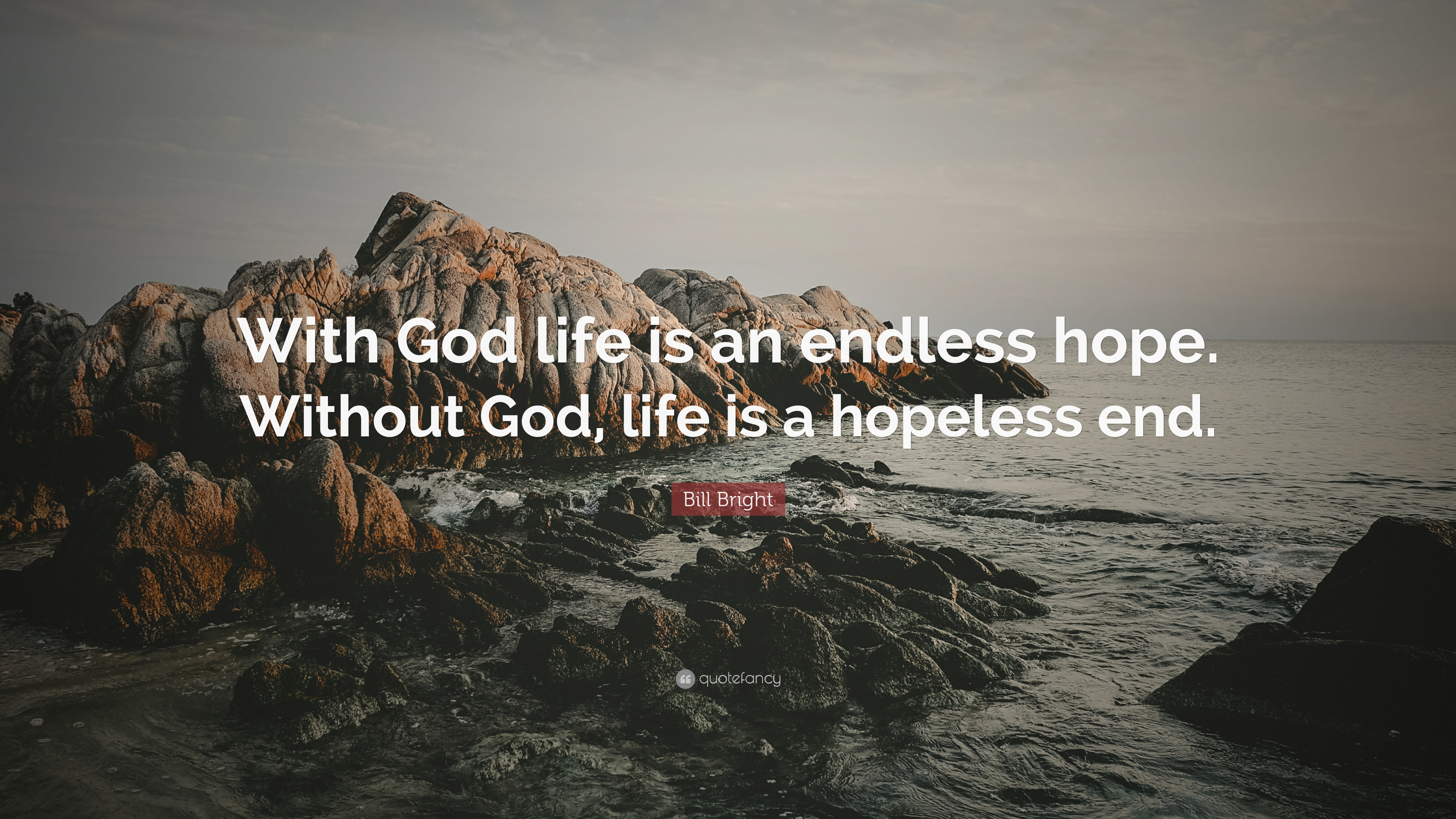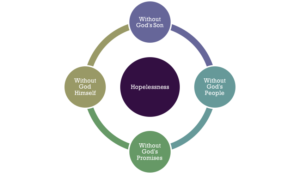
Without God and Without Hope
“Therefore, remember that at one time you Gentiles in the flesh, called ‘the uncircumcision’ by what is called ‘the circumcision,’ which is made in the flesh by hands—remember that you were at that time separated from Christ, alienated from the commonwealth of Israel and strangers to the covenants of promise, having no hope and without God in the world” (Ephesians 2:11-12).
Hope has a triune shape. We saw what separation from the God-man means. Here, Paul targets life without God the Father. In short, hopelessness is the absence of the Trinity. Despair, hope’s counterpart is also triune in form. It is to live without the Three. It is to be without the One.[1]
God the Father is the God of all hope.[2] He is hope’s true source, the giver of all true hope, the very hope of hope. Hope is eternally elusive without God.[3] It does not exist. Helmut Thielicke articulates a painful angle on being apart from God.
“Behind the heroic, set face of man lies the whole tragedy of a child who has lost his father…Doesn’t the world seem a dreadfully ‘unfatherly’ place? Ever since men have walked on earth; have they not always been terrified by the fatherness of the world? The history of the world, taken as a whole, is a story of war, deeply marked with the hoof-prints of the apocalyptic horseman. It is the story of humanity without a Father-so it seems.”[4]
The garden expulsion left us fatherless. It left us homeless. It left us hopeless. This is the fray into which the Triune God enters. We have to grasp the backdrop of despair before we can understand the hope of the gospel.
 Hopelessness sets the stage for hope. Scripture is clear, the situation is dire. To be without hope is to be without God’s Son, the one Lord, the one Savior whose name is Jesus Christ.
Hopelessness sets the stage for hope. Scripture is clear, the situation is dire. To be without hope is to be without God’s Son, the one Lord, the one Savior whose name is Jesus Christ.
Hopelessness is to be without God’s people, to be separated from the community of faith that is connected to the one who is Hope.
Hopelessness is to be without God’s promises, to know the absence of his covenant-keeping faithfulness.
Hopelessness is to be fatherless. It is to be without God in this world, to be separated from the very source and fountain of all hope.
[1] The Triune shape of hope is incomplete without the Holy Spirit. In the broader context, we see that He grants us access to the Father through the Son (Ephesians 2:18). The following pages will show that He is Hope. From a theological perspective, equality of divine essence demands exact equivalence among Father, Son and Spirit regarding any ontological assertions about God and hope. God is Hope. This is true of Father, Son and Holy Spirit.
[2] Romans 15:13
[3] Lincoln, Word Biblical Commentary: Ephesians, 136. “The term ἄθεοs, ‘without God,’ occurs nowhere else in the NT or LXX. Where it is used in Greek writings, it can denote either a person who does not believe in a deity, an impious person, or a person forsaken by God or the gods.” Lincoln argues that the third nuance is most likely in this text. “They lived in a world without true hope and without the true God.” Forsakenness is the status of everyone born east of Eden. The Bible paints the canvas with dark shades of despair. It must. It is the backdrop of the dazzling spectrum of grace and hope.
[4] Helmut Thielicke, Our Heavenly Father: Sermons on the Lord’s Prayer (Baker House: Grand Rapids, 1960), 18-21.



